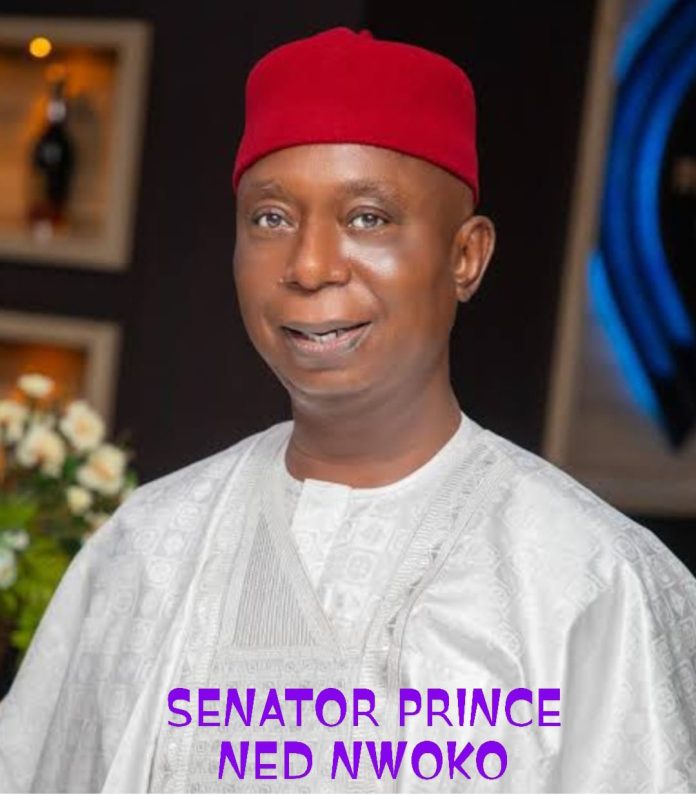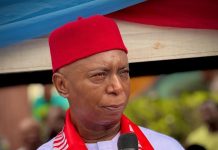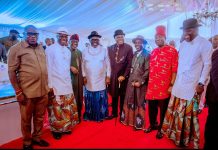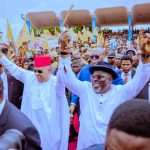By Dr. Chris Okobah
In a dramatic turn of political events, Delta State, once considered the impenetrable stronghold of the People’s Democratic Party (PDP), is now at the epicenter of a seismic realignment.
The recent defection of Governor Sheriff Oborevwori and his entire cabinet to the All Progressives Congress (APC) has upended decades of political tradition and signaled a potential power shift with national implications.
But the spark that ignited this political chain reaction came earlier, and from a familiar name: Senator Ned Munir Nwoko.
Nwoko’s Defection: A Move Once Mocked, Now Vindicated
When Senator Ned Nwoko crossed over from PDP to APC weeks ago, the move was met with skepticism, even derision. Detractors called it opportunistic, painting him as a lawmaker jumping ship ahead of a perceived political downfall.
However, with the Governor and key figures in the PDP now following suit, Nwoko’s decision looks less like betrayal and more like foresight. The defection, which at the time seemed politically costly, has retroactively become a masterstroke in strategic positioning.
The Nwoko Factor: Personality Over Party
Nwoko’s popularity in Delta North is not by accident. With a political career spanning decades and a reputation for pragmatic, people-oriented representation, he has long wielded influence that cuts across party lines.
His legislative contributions, ranging from education and youth development to environmental reform, have cemented his status as a politician deeply attuned to the needs of his constituents.
As political analyst Professor Adewale Onanuga put it: “When a man moves with the hearts of the people, he does not walk alone.” Nwoko’s departure from the PDP sent a message not just to his followers, but to the establishment: the loyalty of the people cannot be inherited, it must be earned.
Strategic Timing or Silent Rebellion?
Insiders suggest that Governor Oborevwori’s defection was not a spontaneous reaction but the culmination of months of internal dissatisfaction within the PDP’s state structure.
Sources cite rising factionalism, policy stagnation, and a weakening federal alignment as critical factors. Nwoko’s earlier exit likely emboldened the governor’s camp, offering both a precedent and political cover for what was once considered unthinkable.
Repercussions Beyond Delta
What has unfolded in Delta is not just a state-level story—it reflects a broader truth in Nigerian politics: personalities often overshadow parties.
Nwoko’s grassroots support, combined with his national visibility, underscores the shifting center of political gravity. In regions where party loyalty once determined elections, individual credibility now appears to be the deciding factor.
As former U.S. President Theodore Roosevelt aptly stated: “The most successful politician is he who says what the people are thinking most often and in the loudest voice.” In Delta State, Ned Nwoko has become that voice , unapologetically disruptive and, increasingly, prophetic.
The Road to 2027: APC’s New Frontier
With Delta now leaning red, the APC’s 2027 campaign machinery gains a powerful foothold in the South-South. PDP, once dominant, finds itself scrambling to retain relevance amid defections and public disillusionment.
The emergence of Nwoko as a strategic figure in this shift places him at the center of not just Delta politics, but national calculations.
Conclusion: One Move, Many Ripples
What began as a single senator’s exit has spiraled into one of the most significant political upheavals in Delta State’s recent history. Senator Ned Nwoko, once criticized for his bold political move, now stands vindicated, not as a defector, but as a disruptor.
His defection has proven catalytic, revealing deep fractures within PDP and accelerating a realignment few could have predicted.
Delta’s political future remains uncertain, but one thing is clear: the game has changed. And Senator Ned Nwoko didn’t just change it, he redefined the rules

















